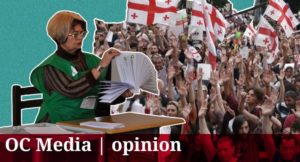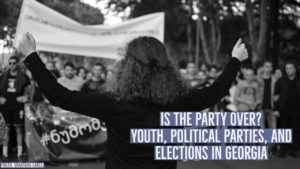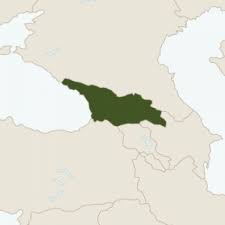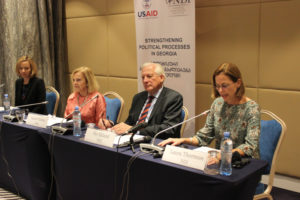 A new front has been opened in Georgia’s ‘Battle of the political airwaves’ with the announcement that a new channel, Formula, will be broadcast from October. One of the financiers is oligarch Davit Kezerashvili, who served as defence minister during the short war with Russia in 2008 when Georgia was still ruled by the Mikheil Saakashvili administration, BNE Intellinews reports:
A new front has been opened in Georgia’s ‘Battle of the political airwaves’ with the announcement that a new channel, Formula, will be broadcast from October. One of the financiers is oligarch Davit Kezerashvili, who served as defence minister during the short war with Russia in 2008 when Georgia was still ruled by the Mikheil Saakashvili administration, BNE Intellinews reports:
With main opposition TV channel Rustavi 2 in the middle of competing claims for legal ownership and possibly set to slip into pro-government hands, and with the owner of the country’s other major channel, TV Pirveli, under investigation for alleged complicity in money laundering 11 years ago—in connection with the also accused co-founders of TBC Bank—there is no doubt that Georgia’s media market is now very visibly subject to a struggle for influence in advance of the 2020 general election.
The likes of Kezerashvili are active in trying to persuade Georgia’s younger generations to pursue a highly pro-West orientation for their country, with the goal of Nato membership, while the ruling Georgian Dream government takes a more balanced stance, stressing the realistic need to maintain good relations with Moscow.
 As Georgia transitions to a new electoral system, it’s up to young people to seize the opportunity , argues Vera Gogokhia, (right), a civic activist and founder of You for Democracy, an NGO supporting youth activism in Georgia. As political unrest continues to swell, the Georgian Dream government has taken two key actions to pacify protesters, she writes for OC Media:
As Georgia transitions to a new electoral system, it’s up to young people to seize the opportunity , argues Vera Gogokhia, (right), a civic activist and founder of You for Democracy, an NGO supporting youth activism in Georgia. As political unrest continues to swell, the Georgian Dream government has taken two key actions to pacify protesters, she writes for OC Media:
- First, they removed Irakli Kobakhidze from his position as chair of parliament and forced the resignation of MP Zakaria Kutsnashvili, who was involved in inviting the Russian MP to appear in Parliament.
- Secondly, and perhaps more critically, Georgian Dream has promised to hold 2020’s parliamentary elections with a proportional system — with no threshold for parties to enter parliament.
 This pledge is not assured, as it would require a change in the constitution, but if realised, such elections will radically change Georgian politics. It could eliminate one-party dominance with a constitutional majority which almost every government has enjoyed, adds Gogokhia, a recent Reagan-Fascell Democracy Fellow at the National Endowment for Democracy.
This pledge is not assured, as it would require a change in the constitution, but if realised, such elections will radically change Georgian politics. It could eliminate one-party dominance with a constitutional majority which almost every government has enjoyed, adds Gogokhia, a recent Reagan-Fascell Democracy Fellow at the National Endowment for Democracy.
Election watchdogs, overall, welcomed recently the proposed electoral reform, saying it will end the kind of party dominance that GD now enjoys, Eurasianet adds.
“Georgian civil society has been requesting a switchover to the proportional system for many years,” said the International Society for Fair Elections and Democracy (ISFED) in a statement. The group said that the change would secure a fair split of parliamentary seats among parties based on national support.

NDI
“It will certainly reflect the will of the population more than the current process,” Louis Navarro, a former head of the National Democratic Institute in Georgia and a frequent political commentator, told Eurasianet. “However, given that approximately 20 percent of the population has consistently expressed an anti-EU/NATO perspective … then it’s possible that a larger faction around that viewpoint could develop than there is now.”
But Georgians’ perceptions of their country’s direction is at its lowest since 2010, with 46 percent saying that the country is moving in the wrong direction, according to the results of NDI’s April 2019 opinion research, conducted in partnership with the Caucasus Research Resource Center (CRRC).
Eleven years after Russian tanks rolled through a mountain tunnel in the Greater Caucasus mountains to invade neighboring Georgia, State Department officials say the West underestimated the geopolitical implications for all of Western Europe.

NDI Press Conference in Georgia. (R-L) Laura Thornton, NDI Georgia Country Director; Ambassador Per Eklung; Ambassador Laurie Fulton, and Laura Linderman, The Atlantic Council
“What happened 11 years ago today, when Russia invaded Georgia, is that actual war came back to Europe in ways that none of us anticipated,” George P. Kent, deputy assistant secretary in the Bureau of European and Eurasian Affairs at the U.S. State Department, told reporters from VOA’s Eurasia division.
But Kurt Volker, the U.S. special representative for Ukraine negotiations, remains optimistic that the U.S. and Ukraine have absorbed lessons of the last decade. “Georgia was the first step, Ukraine was the second step, but it did fundamentally change perceptions of how Putin is acting in the world and what the U.S. needs to do in response,” he said.







